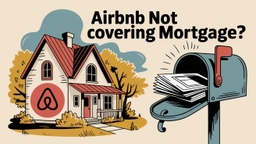Self-managing short-term rentals have become an increasingly popular way to earn passive income in recent years. With the rise of online platforms like Airbnb and Vrbo, it’s easier than ever to rent out a spare room or an entire property to travelers looking for a unique and affordable alternative to traditional hotels.
However, managing a short-term rental property can be a time-consuming and challenging task, especially for those who are new to the industry. From marketing and advertising the property to screening guests and handling maintenance requests, there are many responsibilities that come with being a short-term rental host.
Despite these challenges, there are many benefits to self-managing short-term rentals that make it an attractive option for investors and property owners. Here are just a few of the advantages of self-managing short-term rentals:
- Higher Potential Earnings:
One of the primary advantages of self-managing short-term rentals is the potential for higher earnings. While long-term rentals can provide stable monthly income, short-term rentals have the potential to generate significantly more revenue per night, especially in high-demand areas or during peak travel seasons.
By setting your own rental rates and maximizing your occupancy, you can earn a higher income from your short-term rental property. In addition, you can use dynamic pricing strategies to adjust your rental rates based on demand, special events, or seasonality, further increasing your revenue.
Another way to boost your earnings is by offering additional services or amenities that can increase the perceived value of your property. For example, offering free Wi-Fi, a fully equipped kitchen, or a private outdoor space can make your property more appealing to potential guests and justify higher rental rates.
- More Flexibility:
Another significant advantage of self-managing short-term rentals is the flexibility it provides. Unlike traditional long-term rentals, where tenants typically sign year-long leases, short-term rentals allow you to rent out your property for as little as one night.
This flexibility means you can decide when to rent out your property and for how long. If you want to use the property for personal use during certain periods, you can simply block off those dates on your rental calendar.
In addition, self-managing short-term rentals allows you to adapt to changes in the market or travel trends quickly. For example, if you notice a surge in demand for a particular event or attraction in your area, you can adjust your rental rates or marketing strategies accordingly to take advantage of the trend.







